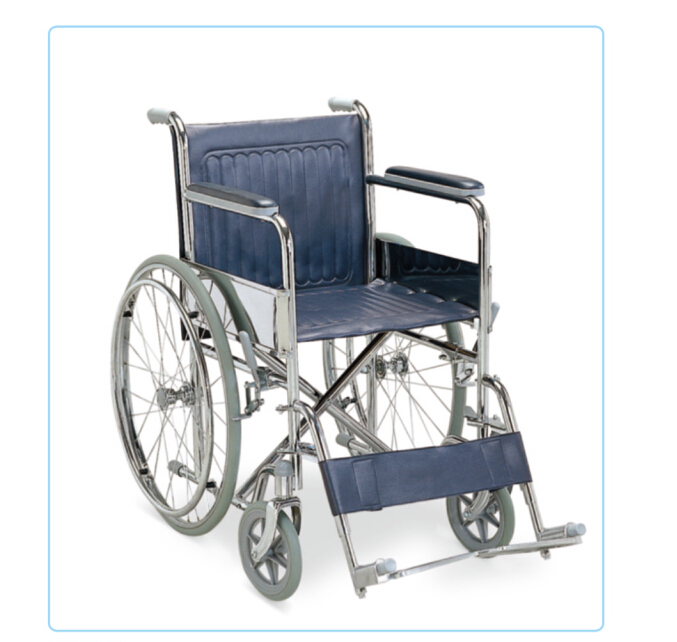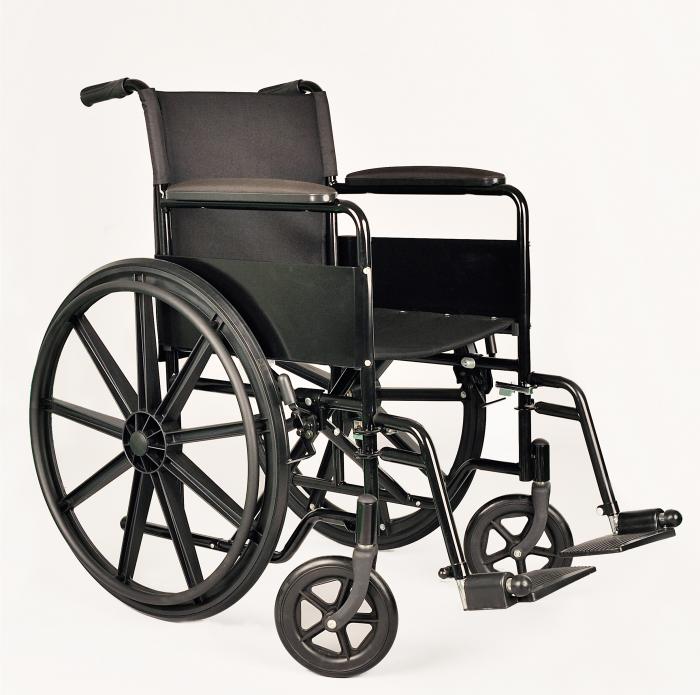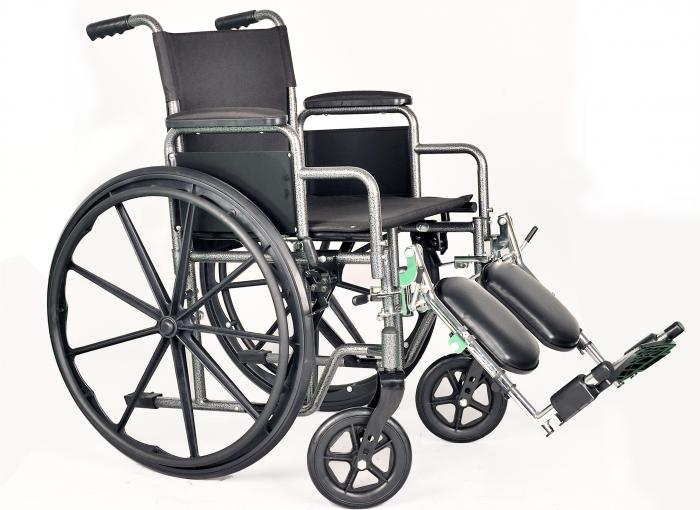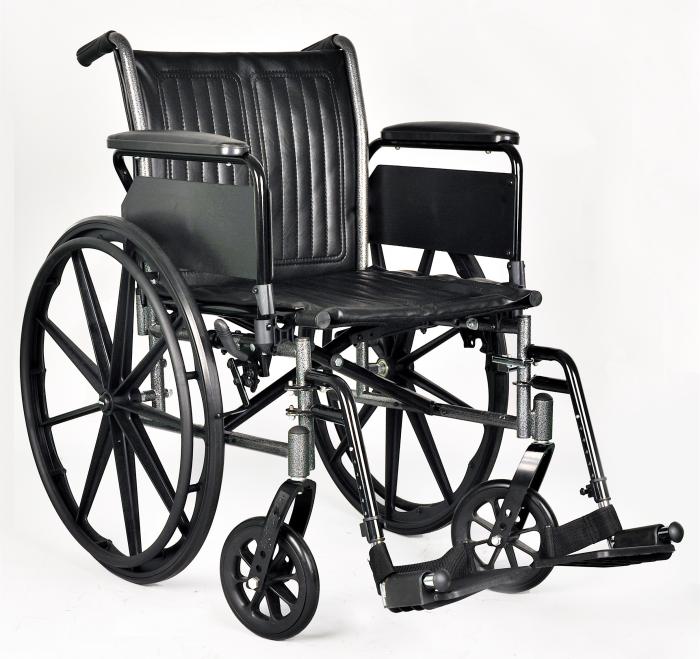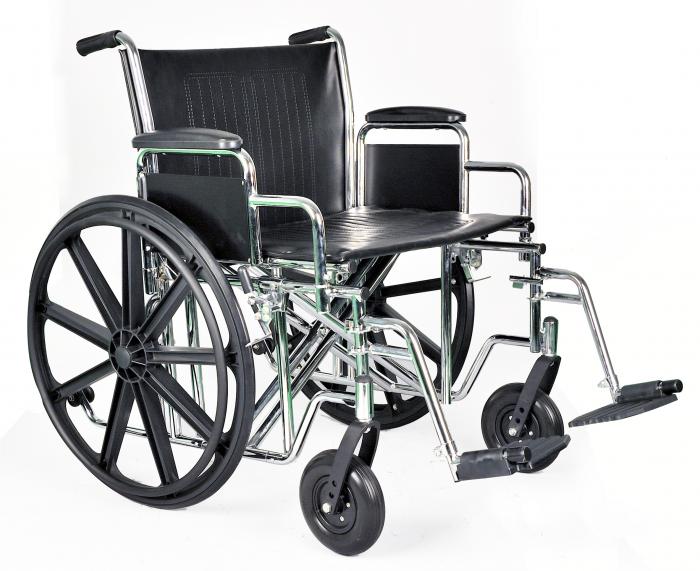| Name: | Folding Wheelchair |
|---|---|
| Model No.: | BES-WL046 |
| Product Name: | Folding Wheelchairs |
| Brand: | BESCO |
| MOQ: | 100 units |
| Keywords: | Folding Wheelchairs,Lightweight Folding Wheelchairs,Folding Wheelchairs for Air Travel,Folding Wheelchair for Sale |
| Sample: | Available |
| Lead time: | 25 days |
| Payment Term: | T/T in advance |
| Country of Original: | China |
| Weight Capacity: | 100 kgs |
| Stock: | Available |
| Port: | Guangzhou,China |
| Office: | Zhengzhou,China |
Products Description
Standard Folding Wheelchair
Folding Wheelchair Features:
Chrome-plated steel frame
Fixed armrest
Detachable footrest,solid castor
Solid rear wheel,Aluminum footplate
Specifications:

A folding wheelchair is a mobility device that can be easily collapsed or folded to make it more portable and compact for storage and transportation. These wheelchairs are available as both manual (self-propelled by the user) and power-assisted models, featuring a folding cross-brace under the seat to allow for a compact shape, making them ideal for people with mobility issues who need a convenient and travel-friendly solution for daily life and outings.
Key Features and Benefits
Portability:
The primary advantage is their ability to fold, making them lightweight and easy to transport in a car or other vehicle.
Storage:
Their compact design allows for easy storage when not in use.
Folding Mechanism:
Most manual folding wheelchairs have a folding cross-brace (X-shaped) under the seat that enables the chair to collapse.
User Needs:
They are suitable for individuals who don't always need a wheelchair but require a temporary mobility solution for certain activities or trips.
Types:
Folding wheelchairs come in both manual and power (electric) versions, with power models offering added maneuverability and reduced physical effort.
How They Work
Folding: To fold a folding wheelchair, the user typically flips the footrests up and then pulls upwards on the center of the seat.
Unfolding: To unfold, the user presses the seat down until it flattens, and a safety mechanism secures the chair in its open position.
Ideal Use Cases
Travel:
They are excellent for travel and busy lifestyles due to their ease of handling and stowing.
Everyday Errands:
They simplify daily activities and outings, providing a convenient option for those with temporary or intermittent mobility needs.
Accessibility:
They are designed for easy lifting and maneuvering into vehicles, making them suitable for people who need a highly portable mobility solution.
To use a manual folding wheelchair, you must unfold it by pushing down on the seat rails or pulling up on the seat fabric until it locks into place, and then secure the brakes before use. To fold the wheelchair, flip the footrests up, unlock any frame locks, then lift the seat fabric upward or pull the backrest and front of the seat down to collapse the chair.
Before Using (Unfolding)
Position the Chair: Place the wheelchair on a flat, stable surface, standing on its front casters if possible.
Locate the Seat Rails: Find the metal bars running from front to back under the seat.
Unfold the Seat: Grasp both sides of the seat fabric over the seat rails and press down firmly until the wheelchair fully opens and the seat locks into place.
Secure the Frame: Check for and press any frame locks or rear wheel braces to ensure the wheelchair is locked in its open position.
Brake Engagement: Engage the wheel brakes before anyone sits in the wheelchair.
After Use (Folding)
Position the Chair: Flip the footrests up to a vertical position.
Release Locks: Locate and release any frame or seat locking mechanisms.
Fold the Seat: Grasp the fabric at the front and back of the seat and pull upwards to collapse the wheelchair. Alternatively, pull the backrest and front of the seat down and together to fold the chair.
Secure for Transport: Lift the folded wheelchair with proper body mechanics, keeping it close to your body to prevent back injury.
Key Tips
Safety First:
Always engage the brakes when the chair is stationary and before someone sits in it.
Proper Technique:
Bend at your knees and keep your back straight when lifting to prevent injury.
Remove Obstacles:
Before folding, remove seat cushions, back supports, or any bags.
Check Manufacturer Instructions:
Folding mechanisms can vary, so refer to the manufacturer's instructions for specific models.
